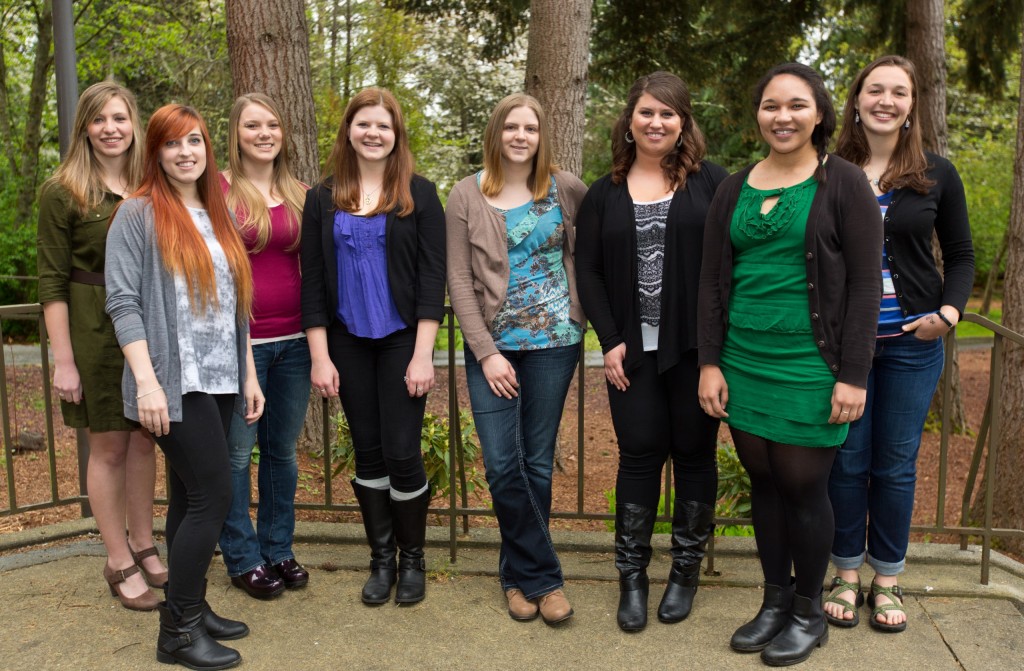Page 177 • (1,835 results in 0.07 seconds)
-
Theological Critique of Liberation Theology2015Andrew Allen, Seeking Economic Justice Through American Congregations: An Analysis of the Influence and Promise of the ELCA Social Statement on Economic Life Hannah Anderson, Lutheran Responses to Injustice: A New Theology to Combat Gender-based Violence in Southern Africa Jacob Brock, Subduing the Earth Responsibly: Giving “Priority of Labor over Capital” in Laborem Exercens’ Environmental Consideration Louise Buckles, The Gospel of John’s Community: A Group
-

going to law school and dealing with environmental issues,” she said. “Doing the trail really heightened that passion.” Ballinger said there is much to gain for everyone who hikes the Pacific Crest Trail in some fashion. “I think everyone should do this, even if it’s just a weeklong hike,” she said. “You learn to appreciate the little things in life that are forgotten a lot.” And don’t let your personal limitations scare you out of it, she said. “You don’t know how far you can go until you do it
-
been a hive of activity since it opened, and has capably shouldered much of the theatrical load since Eastvold Auditorium closed. Like its larger sibling, it is also equipped with state-of-the-art lighting, sound and infrastructure, and was constructed with the highest environmental standards in mind. When the Eastvold Auditorium Main Stage opens in October, PLU will have two working stages that are capable of running simultaneously. “The opening of the Karen Hille Phillips Center for the
-
social and cultural impact of video games in American history, including how historical figures and events have been represented in popular games during the past 40 years. Combines the study of visual media theories and the creative process with social and political issues in games, including ethical action, violence, gender, ethnicity, religion, and environmental concerns. (4) HIST 210 : Contemporary Global Issues: Migration, Poverty, and Conflict - ES, GE This course introduces students to central
-

communities. It really is all about community.” JESSICA SADLER Hometown: Mesa, Ariz. Major: Philosophy and Environmental Studies. Graduation date: May 2014 Peace-building experience: Sadler studied away in England, Germany, Poland, the Czech Republic and Northern Ireland, where she built relationships with her fellow travelers—and cohort members. “To see common experiences and how beautiful people are—all these girls on the trip—we learned so much about the human condition and how we work with the world
-
35 feet of the work area. Protective dividers such as welding curtains or non-combustible walls will be provided to contain sparks and slag to the combustible free area. 6.0 Hot Work Permits (See Appendix B)A hot work permit will be issued for all welding/cutting performed outside of designated welding areas. The Maintenance Supervisor or Environmental Health & Safety Manager is responsible for evaluating and issuing hot work permits for all campus operations. See the permit in Appendix B for
-

wider worlds of business, economics, and technology. For your program, Marc, there were faculty from History, Sociology, Economics, and Anthropology involved!” Michael: “Matt, can you tell readers how you got started with your business history project?” Matt: “Sure—It began with my shared interests in History and Economics. In this case, you were my faculty adviser, Dr. Halvorson, so when you described your current research on the early history of personal computing, I was intrigued. The topic that
-
, Puget Sound industry and more. Zylstra said the program offerings encourage students to stay connected to PLU, while keeping one foot off campus. “We want the pivot foot to be in the community,” he added. TIES is Easley’s first study away experience. She said she appreciates all the opportunities PLU has to offer, but noted that staying at PLU all day every day was a challenge. “I was feeling a little squashed down,” she said. “I wanted to get off campus.” The Hispanic studies and sociology double
-
organizations; for air, water quality, and solid waste management; offices in professional societies and environmental organizations; articles in local newspapers as well as in scientific journals; talks at schools and community groups as well as papers presented at national and international scientific meetings; choral groups on and off campus. In these ways the ideals of liberal education are illustrated to our students and to the community.
-
release of popular documentaries such as Forks over Knives and growing concerns regarding food sourcing. The room was packed, standing room only and more than 100 people in attendance including community members and students and staff from Pacific Lutheran University and University of Puget Sound. Dr. Emmerman and Ms. Tinker, presented a multifaceted moral and environmental argument. The team personified animals, asserting they knew the animals didn’t want humans to eat them. Dr. Schleeter and Mr
Do you have any feedback for us? If so, feel free to use our Feedback Form.


